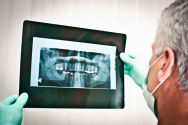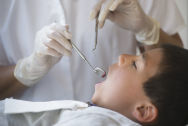Are you one of those who dreams of becoming a dentist and having to run your own dental office someday? While some people don’t fancy the idea of looking and examining other people’s mouth every day, there are quite a few who really want to get involved in dentistry. It’s actually an ideal and very productive career and having to help others deal and treat all sorts of dental and mouth problems can be very rewarding.
Generally speaking, dentistry is a very big field. It is composed of several specializations and it includes the following:
General Dentistry
Before moving on with the different fields of specializations, let us first take a look at dentistry in general. The profession covers a very large array of studies and procedures. The list includes the diagnosis, evaluations, treatment, and prevention of the mouth, specifically targeting the oral cavity, maxillofacial portion, and other nearby structures or parts of the mouth. The procedures performed by general dentistry can be both surgical and nonsurgical. Additionally, the general practice includes training and courses in the field of ethics and laws governing the practice.
But general dentistry is also subdivided into different specializations and each one is explained below:
- Dental Public Health – Dental public health is commonly referred to as the field that takes care of the prevention and control of the prevalent and known dental issues, illnesses, and diseases. It involves the responsibility of promoting ideal dental health for all people in a certain area or community. The practitioners under this field do not concentrate on individual patients. They focus on distributing information and education to the community.
- Endodontics – An endodontist on the other hand is someone who specializes in taking care of the dental pulp and periradicular tissues in the human mouth. The field involves the study of the pulp and the diagnosis, prevention, and of course, treatment of various types of diseases connected or related to the dental pulp. You normally go to a dental office specializing in endodontics if you’re seeking for a root canal surgery, therapy, and other severe cases involving the pulp.
- Orthodontics and Dentofacial Orthopedics – Meanwhile, these two disciplines are focused on the neuromuscular and skeletal issues like abnormalities found in the orofacial structures. The study and field of orthodontics involves the prevention and correction of malocclusions and those related to it. But setting aside those very unfamiliar terms, dentists specializing in orthodontics are the ones who make and put up corrective braces.
- Pediatric Dentistry – As the term implies, this one involves a dentist who specializes in helping kids, infants, children, and adolescents with dental problems. Aside from prevention, this also pretty much involves therapeutic dental care for children especially those with highly sensitive dental health problems.

- Periodontics – Next is the field that focuses on the tooth structure. Specifically, dentists specializing in this area are responsible for the treatment and prevention of certain diseases that are linked to the tooth structure. Additionally, periodontics also covers the diagnosis, prevention, and treatment of gingivitis as well and the maintenance of the look and good health of the tooth structure.
- Prosthodontics – Last but not the least, there’s prosthodontics. It’s the field of dentistry that focuses on those patients who experience or suffer from missing and deformed teeth. Hence, dentists in this area are associated with reconstructive teeth surgery, implants, and esthetics. The main purpose of the procedures is to repair the teeth so as to restore the normal oral function.
So those are the most common and widely known types of dentistry. However, it should as well be noted that there are still some other specializations and fields that are rather too specific and targeted to very particular issues in dental health.







